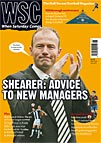 Belgium’s linguistic and political split between Flemings and Walloons is now affecting its football, writes John Chapman
Belgium’s linguistic and political split between Flemings and Walloons is now affecting its football, writes John Chapman
Belgium holds a unique place in western Europe as it’s the only country that is anywhere close to be being roughly equally divided along linguistic lines. The two halves – Flemings (Dutch speaking) and Walloons (French speaking) – are rarely united these days; there has not been a national show of unity since 1996 when 300,000 Belgians took to the streets in protest against the police’s apparently mishandled investigation into a series of internationally reported child murders by Marc Dutroux. Prior to that, there are memories of an outpouring of grief at the death of King Baudouin in 1993 and the 1986 return to the Grand Place of the “Red Devils” after they had reached the World Cup semi-finals in Mexico.
However, in the past ten or so years, the talk has been of the country splitting – talk that has mainly emanated from the Dutch-speaking north of Belgium. There’s a bit of history here of course. Wallonia held the upper hand in the Sixties and Seventies due to its burgeoning steel and mining industries. That has changed, with Flanders becoming something of a high-technology hotspot and Wallonia sinking into an area of high unemployment. Most of this talk of an independent Flanders originates in the extremely complex world of Belgian politics. Recent events, however, have shown that it is spilling over into the world of sport in general and football in particular.
Belgian football has long been dominated by Flemish teams; a current look at the first division shows that only five of the 18 teams are from French-speaking areas. Although Standard Liege won the Belgian championship last year, it was their first triumph for 20 years. Belgium’s most famous club is undoubtedly Anderlecht, from the north of Brussels. The Belgian capital is largely French-speaking, but its most famous football club has firmly Flemish roots.
Despite this, there has never been talk of dividing Belgian football along linguistic lines – until last year. Then, the Belgian Football Association (URBSFA/KBVB) voted – by a small majority – to create Flemish and Walloon leagues at the amateur level. This split came about at the insistence of Flemish politicians who wanted the infrastructure of their local clubs to benefit from an injection of funds from the Flemish regional government.
The political split was thrown into stark relief by two recent football matches. In November, Tubize – one of five Walloon clubs in the first division – played Genk, a club in the heartland of Flanders and the Belgian home of the Ford Motor Company. The match became famous for the “Derwa affair”: the Tubize manager Louis Derwa complained to the referee about Genk fans chanting “Walloons are shit” for long periods of the game. He was particularly upset as it was Tubize’s first game following the inauguration of their new stand and 500 children and their families had been especially invited to the match. Not that children would have been too concerned, one suspects. The Belgian FA took that view, and, despite some protests, announced that the chants had simply been “playful”.
Feelings, though, were ramped up several notches in February. Royal Antwerp, the oldest club in Belgium and one firmly in Flanders but currently in the second division – “welcomed” Virton (a Walloon club) to its venerable and deteriorating stadium. After several unsavoury incidents during the game, Antwerp’s fans started chanted “Walloons are paedophiles” – a reference, one assumes, to the Dutroux affair as the convicted serial killer lived in Charleroi in Wallonia at the time of the murders. This time there were reactions from both sides of the linguistic divide, with demands for the Belgian FA to – at last – take action. Not that Antwerp admitted any wrongdoing, preferring to say that their fans were reacting to provocation from Virton’s coach.
One of the results of Belgium being divided along both political and linguistic lines is that everything takes a long time to be resolved as there is a chronic lack of decision-making – witness many years of coalition governments and many months in 2008 of no government at all. Now the Belgian FA has held “extraordinary” sessions to discuss the issue and promises further meetings in June, when the FA’s rule-making bodies will be asked to incorporate FIFA’s guidelines (article 58) on racist chanting into legislation. Like the talk of a genuine division of the country into Flanders and Wallonia, these divisive stories from Belgian’s football fields are likely to run and run.
From WSC 267 May 2009